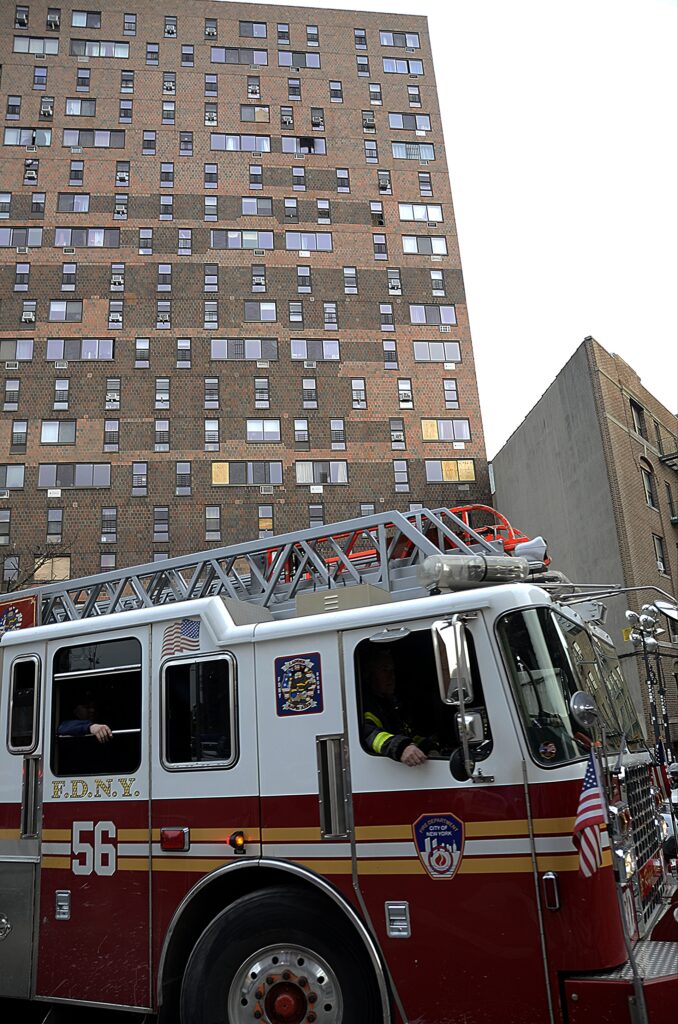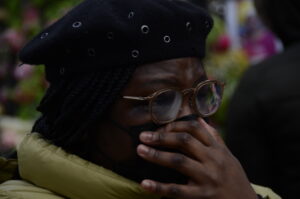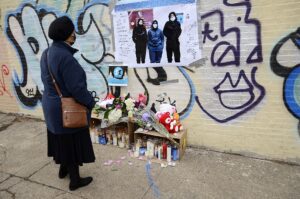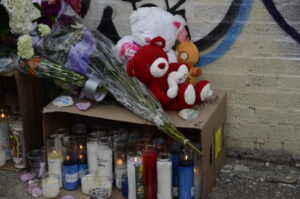Bronx building tragic fire after two days closed, open doors
New York — The city’s Housing Preservation and Development agency for the 333 E. 181st St., in the Bronx, it took just two malfunctioning, open doors to allow a 19-story building to fill with smoke, causing 17 deaths, according to fire department officials.

They argue that the city and state need new laws to motivate landlords to make proactive fixes to buildings and increase the city’s own inspection requirements, moving the burden off of tenants to report problems, such as requiring annual building reviews.
“When you have a resource like this building was to this community, that has affordable housing for decades, families living there for decades, the city and state should be doing more to make sure that building is safe and decent, and remains affordable,” said Ellen Davidson, a staff attorney at Legal Aid who works on law reform.
Tenants of the Bronx building have filed two class-action lawsuits against the building owners and the city alleging that both failed to make sure the building’s doors were self-closing, did not provide “adequate and lawful heat” and did not properly maintain the smoke detectors, as well as other claims.
Fire Department Commissioner Daniel Nigro has said that so far, the department’s investigation has found that the fire was likely caused by a malfunctioning space heater in a second-floor unit.
New York City’s housing department has a staff headcount of 484 people, according to the department, who are tasked with inspection for more than 1.3 million city residential units. New York City’s 26,000 restaurants, by comparison, have 100 inspectors, who are empowered to temporarily shutter restaurants that fail a safety visit.

Buildings that receive federal funding through the Section 8 voucher program, including 333 East 181 Street, are supposed to get annual safety reviews from state inspectors, Davidson said. Yet while the inspection form includes sections for adequate heat supply, it does not include self-closing doors.

The state buildings department declined to share inspection information for 333 E. 181 St. NY1 has filed a Freedom of Information request for the records.
Records of city inspections of federally-subsidized units in the building obtained by NY1 showed that a handful failed to pass health and safety guidelines last year, including one that was cited for a missing smoke detector. In that unit, records show, the problems persisted for long enough that the city’s public housing authority suspended its federal subsidy. A spokesperson for the building owners said they were only let into the unit on their seventh try of trying to access it to make repairs.
Housing lawyers say that even with overlapping state and city inspections, residents are still required to complain, either by calling 311 or filing court actions, to see repairs.
“If you don’t have systemic, obligatory inspection on a routine basis, you’re then relying on people to run a complaint driven system,” said Andrew Scherer, a visiting professor at New York Law School and the author of “Residential Landlord-Tenant Law in New York.”
The current system, Scherer said, requires tenants to feel empowered enough to complain, have the financial and job security to spend a day at home waiting for city inspectors, and potentially the ability to take several more days to attend housing court hearings.

While tenants now have a right to an attorney when contesting evictions in New York City, the vast majority of tenants who file complaints in city housing courts have to navigate the filing and hearings without a lawyer, according to Georges Clement, the co-founder and executive director of JustFix, which creates online housing software tools.
For 14 months in the pandemic, housing courts allowed tenants to file complaint actions through JustFix’s software, as well as attend hearings virtually. The company saw more than 3,200 actions filed through their system in that period, Clement said. A representative for the courts system did not respond to a request for comment.
Another bill would guarantee a right to an attorney for tenants facing eviction proceedings at the state level. Both bills are currently in committee.



